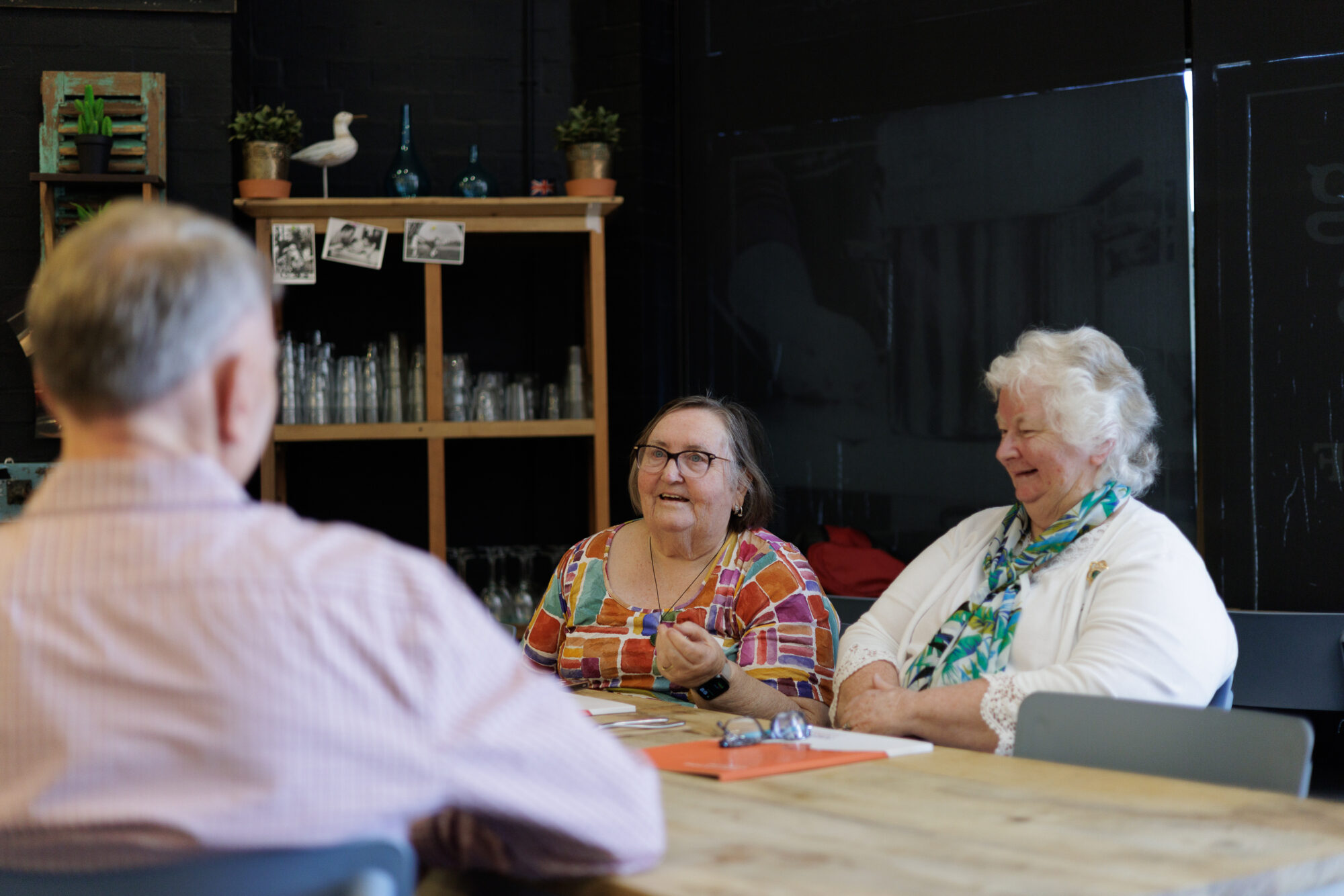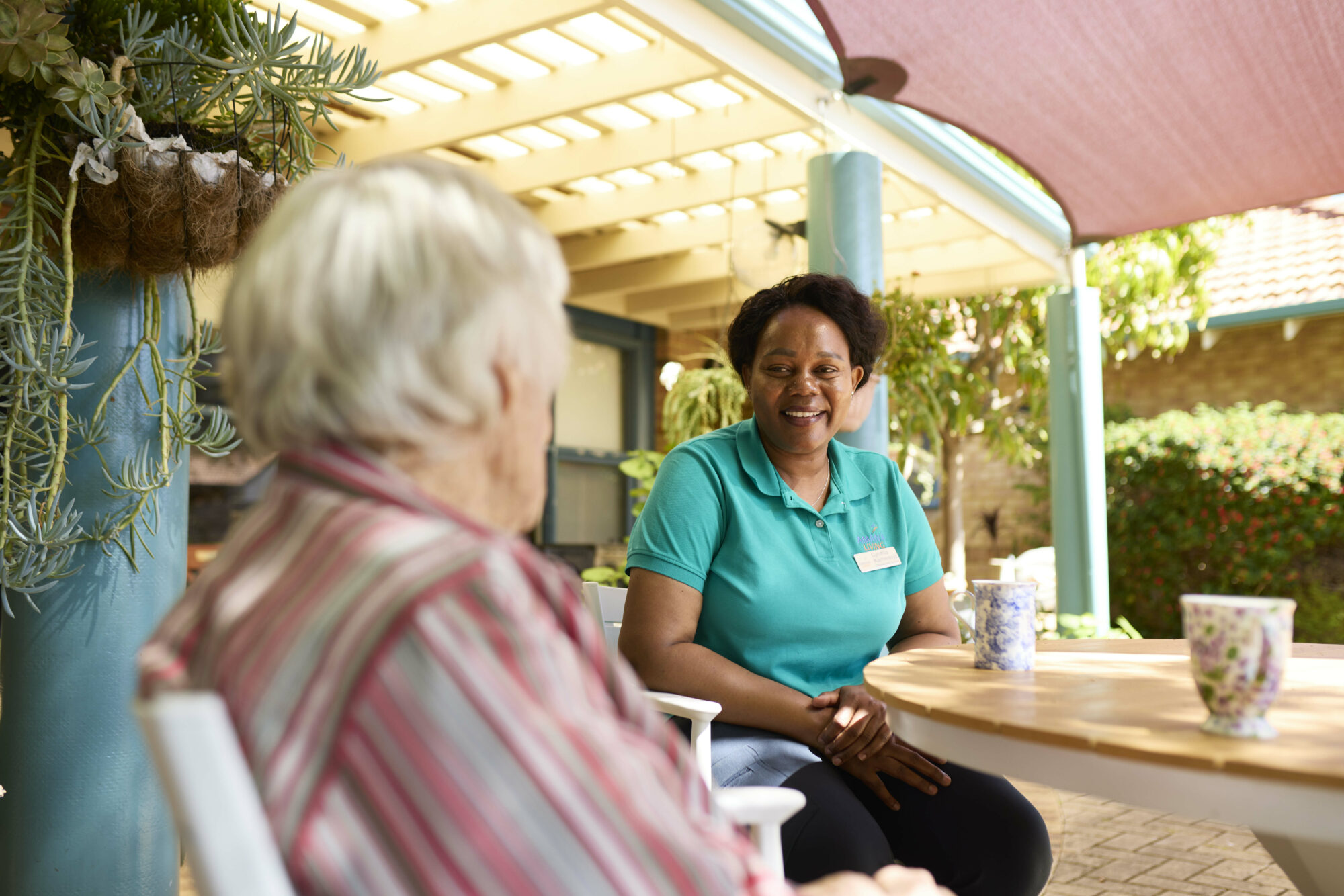Facebook, email, instant messaging. Social media and broader technology have become synonymous with modern communication.
You only have to look at how many people now rely on texting instead of calling to see how the way we communicate has changed. Thanks to mobile phones, we’ve said good-bye to the phone booth and the home phone seems to be on the way out too – in 2017 nearly one third of Australians scrapped their landline according to research from the Australian Communications and Media Authority.
But where does that leave people who aren’t technology savvy and find the world of social media to be daunting or hard to understand? While many older people have grasped the smartphone and iPad with two hands, there are many who are scared of these devices or don’t know how to start embracing the many opportunities they bring.
Yet getting to grips with technology can deliver huge benefits, particularly for those seniors who might find themselves living at home alone or are disconnected from their community through illness or disability.
Loneliness among older Australians is of growing concern as older people can be prone to loneliness and isolation due to the loss of their partner or friends, distance from their families, and becoming less mobile. This can contribute to health problems ranging from obesity to depression, and potentially lead to an early death.
At Amana Living we’ve been taking a proactive approach to tackling loneliness and social isolation in our residents and clients and have put a big focus on how we can use technology to facilitate connection.
Louise Molyneux is Amana Living’s Enrichment Technology Advisor responsible for overseeing the use of technology in Amana Living’s residential care centres, home care and housing. The role is unique to Amana Living and focusses on digital inclusion, providing residents and clients with access to services and education that helps to improve their self-esteem, confidence and connectivity.

GenConnect
One of the programs Louise looks after is called GenConnect. It involves a partnership with local Anglican schools where students teach digital skills to seniors, with the ultimate goal of increasing their social connections and independence.
Louise explains: “GenConnect aims to increase the digital literacy and social connectedness of Amana Living residents through personal tuition provided by secondary school students.
“In our pilot with St Mary’s Anglican Girls’ School, each resident was partnered with 2 students and set their own technology learning goals. Over 6 one-hour sessions the students covered everything from how to navigate the internet on a smartphone or tablet through to using email and social media.
“Our residents have really enjoyed learning in a stress-free and inclusive environment, plus the opportunity to bond with a younger generation. They’ve also loved the chats during the class, citing the social aspect as one of the most beneficial aspects of the tuition.
“The students have benefited from the class too. Their self-esteem has been boosted from sharing their own skills and knowledge and seeing older people’s confidence with technology grow. They’ve also enjoyed spending time with our residents. All of the students involved in the pilot said they would do it again.”
Two Moline Village residents who have taken part in the GenConnect program are Pam Woolford and Pat Quinlivan.
Pam joined GenConnect because she wanted to learn how to send emails on her iPad to her family living in New Zealand, as well as how to share photos.
“My family gave me an iPad for my 80th birthday, so I felt that I had better learn how to use it! I’m not technology minded at all but I know what I’m doing now thanks to the St Mary’s girls, who were marvellous. They were really patient with our questions, happy to cover anything we wanted to learn and didn’t mind going over things again.
“While I’d prefer to talk to my son and daughter-in-law on the phone, it’s been handy to ping them an email about their travels. Plus, I’ve got into Pinterest which I enjoy. I highly recommend the class, as I think it is so beneficial.”
In contrast, Pat joined GenConnect without owning a device but is now a real technology convert since taking part in the classes.
“I borrowed an iPad when I first joined the class and after a while I knew I didn’t want to give it back as I’d gotten so attached. My son helped me to choose a Samsung tablet which is now linked with my desktop and my smartphone. I’ve set-up Facebook and also Instagram so I can keep in touch with my granddaughter in NSW who has had a baby boy. Seeing photos of him from a newborn to 9-months old has been the next best thing to seeing him grow up in person.
“I do my banking on the tablet, keep an eye on the Dockers’ football scores, plus use Skype to keep in touch with my grandson and a friend of mine who has moved to the Philippines. It’s been great and I can’t imagine life without it now.
“I will always be grateful to Amana Living for setting up GenConnect and to the girls at St Mary’s for their patience and encouragement. I can’t wait to do more classes and increase my knowledge.”
Just like Pam and Pat, a large number of participants said they were more confident to use technology in their own life after attending the sessions. Following the hugely successful pilot of the program at Moline Village, GenConnect is now being introduced at other Amana Living locations.

eConnect
eConnect is another program designed by Amana Living to help seniors communicate more effectively with Amana Living, family and friends, while improving access to information about their services.
We’ve partnered with Telstra to pilot the project, providing home care clients with a tablet free of charge for three months. The tablet provides a direct video connection with their Service Coordinator, plus provides the option for family members and other health providers, like GPs, to join in a tele-conference to discuss care options. There’s also an online portal where clients can manage all their health care records and service information like appointment times and budgets. While the ultimate goal of eConnect was to enable clients to become more involved in their care, it’s delivered much broader benefits.
David and Bev Lee joined the pilot in February 2018. They didn’t have any prior experience using a tablet but have found it easy to adapt to and navigate. Now David uses it for weekly video Skype calls with his sister, Jenny, who lives in Queensland and David hasn’t seen for three years. “It’s great to have a video call with Jenny as David can see her face, and they have more regular conversations now,” explains Bev.
Bev has also found the tablet useful for keeping in touch with David when he goes into respite. “David takes the tablet with him and I can Facetime him, plus send photos of what I’ve been doing or where I am.”
Staying in touch
Regular interaction with people and the opportunity to try new things is vital to your physical and mental wellbeing. Technology can help you stay in touch with loved ones, as well as provide a window to the wider world and access to other services. It’s why we will continue to promote digital inclusion and the role it plays in helping older people feel more connected, empowered, and involved in their community.

Understanding loneliness and social isolation
What is loneliness?
According to AGE UK, loneliness is a subjective feeling about the gap between a person’s desired levels of social contact and their actual level of social contact. It’s related to the quality of relationships, rather than the number of connections, as you can be surrounded by people but still feel lonely.
What is social isolation?
Social isolation is experienced by people who have little or no relationship with others. It can be deliberate or unwanted says ACSA and is an objective measure.
How many older Australians are affected?
The 2012 Productivity Commission Report found that around 16% of people aged 65 and over do not leave their house or go out as frequently as they liked. This increases to almost half among people with a profound or severe disability.
How can loneliness and social isolation harm your health?
The Campaign to End Loneliness says loneliness and social isolation can be harmful to your health, which research showing that it can be as damaging as smoking 15 cigarettes a day. Loneliness increases the risk of:
- Coronary heart disease
- High blood pressure
- Onset of disability
- Depression
- Cognitive decline
- Dementia
- Suicide
What can you do?
We offer a broad range of services at Amana Living to help older people get out into their community and make new friends. For example, our KITES program, funded via Home and Community Care (HACC), offers regular outings to Perth locations and many attendees have formed lifelong friendships. While our home care clients can access social support which can includes activities like doing the shopping together, visiting friends, or simply going out for a coffee.
Visit www.amanaliving.com.au for more information or call 1300 26 26 26
If you or somebody you know experiences depression or is thinking about self-harm contact:
Lifeline: 13 11 14
www.lifeline.org.au
beyondblue: 1300 22 4636
www.beyondblue.org.au




